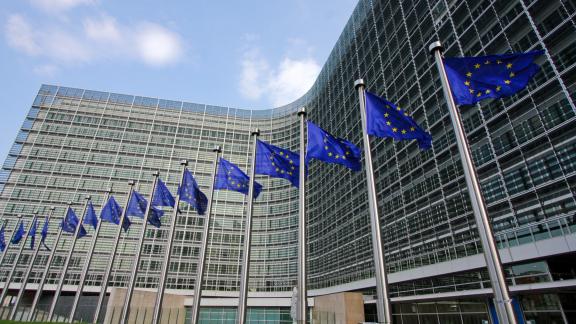Time is running out for Brexit negotiations to avoid an EHIC-up in your travel plans

Layla McCay spells out what the outcome of the future relationship negotiations between the UK and EU could mean if you need healthcare in an EU country from 2021 onwards.
Coronavirus has shattered the confidence of holidaymakers, with plans engulfed by waves of infection. Last month saw the introduction of a 14-day quarantine for travellers returning from Spain. However, next year travel plans for millions could crash against the sea wall of invalid healthcare rights.
The impact of coronavirus on your holiday plans is clear and present, but while future relationship talks are still anchored to clarifying positions, we are in danger of missing an undercurrent of restrictions on travel next year if a comprehensive deal is not reached. Your European Health Insurance Card (EHIC) card will no longer be valid and it remains to be seen whether similar rights to emergency healthcare when travelling in the EU will take its place. Everything hangs in the balance.
Both sides want an agreement similar to the EHIC, to include reciprocal healthcare cover for urgent, unplanned treatment needed when a British citizen is visiting an EU country temporarily, or vice-versa. But if an agreement is not reached, the UK will need to seek reciprocal healthcare deals with each individual EU country, which may or may not be inclined to agree.
Worryingly, the negotiations are still treading water and with no agreement, travellers will have to take out comprehensive private travel insurance, similar to any other foreign country with which the UK doesn’t have a healthcare deal. Nine out of the ten top destinations for UK holidaymakers are EU countries: Spain, France and Italy top the league table, with around 28 million British visitors every year to those three countries. For low-income older people with pre-existing conditions, a holiday in Alicante could be an unaffordable luxury without the life ring of healthcare cover.
There is good news for British pensioners who already have their ‘place in the sun’, such as the 300,000 British residents in Spain alone. Retirees already lawfully living in an EU country before the cut-off point of 31 December this year are protected by the legally binding Withdrawal Agreement between the UK and EU and will be able to continue receiving healthcare on the same basis as local residents. However, anyone thinking of moving to live in an EU country in 2021 or later, or moving from the EU country they’re in now to another, needs to watch the shifting sands of the future relationship negotiations very closely.
Even if the UK and EU come to an agreement this year, it will almost certainly not include healthcare cover for residents such as British pensioners who, from January 2021, choose to retire to sunnier climes. They may still be able to access their retirement pension abroad but unless the UK has a specific reciprocal agreement with the country they are living in, they will have to pay for their own health insurance – and if they are elderly, that won’t come cheap.
And it’s not just holidays and residence that are shrouded in clouds of uncertainty. Despite the UK pushing for exceptions to be made for a limited list of treatments such as dialysis or chemotherapy, pre-planned cross UK/EU border treatment is not even on the EU’s negotiating agenda. Dialysis treatment alone is currently administered to 30,000 travellers throughout Europe free of charge to the recipient because of the EHIC. Without reciprocal healthcare agreements it will cost individuals up to £1,000 per week.
The Brexit Health Alliance (BHA), a coalition bringing together healthcare organisations such as patient groups and medical charities and facilitated by the NHS Confederation, is campaigning for patients’ rights to affordable healthcare at the point of need to be at the heart of the future relationship between the UK and the EU. The outcome of negotiations will determine the future healthcare rights of millions of UK and EU citizens who find themselves needing treatment when in each other’s territories. Whether it’s an emergency such as a serious accident while on holiday, or ongoing care for a chronic condition for a pensioner who’s retired to live abroad in an EU country, the rights patients have enjoyed for so long are at risk if the UK and the EU can’t agree a deal.
It’s now a matter of weeks before an agreement has to be reached and healthcare is by no means top of the agenda. Failure to reach an agreement will see citizens at the mercy of reciprocal agreements between the UK and whatever country they’re in, and if these don’t cover them, their private health insurance.
BHA is calling for the negotiators on both sides to reach an agreement that guarantees affordable healthcare when in each other’s countries on the same basis as the treatment provided for local residents. See the BHA’s latest infographic and briefing and join us in calling on politicians across Europe to put the lives and wellbeing of their citizens first.
Coronavirus has shown how interconnected our health needs are and how waves of uncertainty can engulf travel plans. To be beach/residence/treatment and travel ready in 2021, this is no time to be treading water.
Dr Layla McCay is director of international relations at the NHS Confederation. Follow her and the organisation on Twitter @LaylaMcCay @NHSConfed
Healthcare rights for patients after Brexit
Download the Brexit Health Alliance's latest infographic and briefing for insights on the risks to UK and EU citizens' healthcare rights if Brexit negotiators don’t agree a deal by 31 December 2020.



